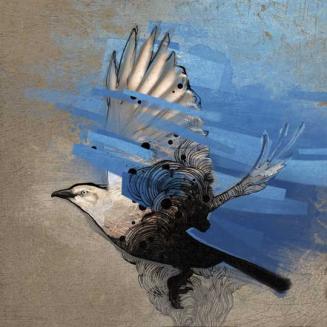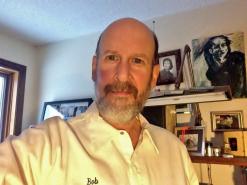Squandering, the Genius of the Community

The artist who is nourishing hau is not self-aggrandizing, self-assertive, or self-conscious, he is rather, self-squandering, self-abnegating, self-forgetful—all the marks of the creative temperament the bourgeoisie find so amusing. (hau: a Maori word meaning spirit, particularly the spirit of the gift and of the forest, which gives all food.)
-Lewis Hyde: The Gift: Creativity and the Artist in the Modern World
Last week at the used bookstore in town I found this extraordinary book by Lewis Hyde, which just about all of my artist friends seem to have read but which had somehow escaped me. It has helped to crystallize the elements of my struggle between the world that I mostly move in, that of the bourgeoisie, of which I am very much one this last odd decade, and the world that I know to be true, the one in which self-abnegation could possibly be seen as a virtue, which I hold it to be, instead of something one should be made to apologize for.
The Gift, on the other hand, makes the case in a completely unique way, to me, that to assign value to any piece of writing or art is to immediately undermine its worth, and that we live now in a world that must assign value to everything, and so we have lost, for the most part, the gift aspect of art, which is regenerative, and replaced it with a commoditized place for art. This not only debases the art but in Hyde’s phrase, “denies the genius of the people,” genius here meaning something like hau, the creative spirit of the community. So that each day this past week when I go off to do what I do for my day job I seem more debased than ever. That is, I realize now that I’m not only debasing myself, which always seemed after all like my prerogative, but the genius of my community, which is a little harder to swallow. It seems like the only way to right this in the short term would be to stop trying to publish my writing and instead simply to give it away. Nothing much would change except my stance, and perhaps my cover letter. Instead of the vaguely fawning tone I have taken in the past, I would fall back comfortably to the original sense of the word “submission,” which I have always slightly bridled at, and write as if I were writing to one of my friends/readers: “I’m  sending along my most recent piece, which I’m oddly fond of. I hope you will be fond of it, too. Do with it as you please—it’s yours.”
sending along my most recent piece, which I’m oddly fond of. I hope you will be fond of it, too. Do with it as you please—it’s yours.”
Still, I have not been able to bring myself to start my application packet for the Vermont Studio Center, which I find myself longing for daily. I’ve never really allowed myself to think of working in such a place, but in reading The Gift I begin to see the need for such places, not just as places for artists to work and be housed and fed, but as communities that stand outside the realm of commerce and operate on another principle entirely. My story to myself has always been that I have enough discipline to write on my own, and now I even have a swell little writing shack of my own just up in the trees behind my house, so why pay to reside for two weeks in some other little shack hoping there to find what I should instead cultivate at home? The answer, it somehow occurs to me only now at this late stage, is to be to be part of a community of artists, which has never been something I’ve much wanted. This is because I have been fixated on, to borrow Lewis Hyde’s terms, egoism art instead of on this other, regenerative art, made and offered as gift.
I see now too that this is what my artist friend Jill is doing in her drawings, and that it is far more radical than even her subject matter. It is no doubt the reason she struggles sometimes with her curator/husband, Jim, because he is trying to do something impossible—he’s trying to get people in Manhattan, the capital of commoditized art, to look at and value art that I’m quite certain that Jill intends as gift—not only that she practically gives away her work (and often she literally gives away her work), but that she seems to choose her path into the work according to what would best feed the hau, or serve the genius of the community. Hyde quotes Rilke—“Not working to acquire silent, slowly increasing possessions, but rather a continuous squandering of all perishable valuables.”
There’s that word squandering again, held up as something virtuous, and I find myself longing to move in such a world, where to squander is considered the fine thing that it is, the endless giving away, not wasted, the way it gets used in the world of commerce and of sports—a squandered opportunity—but given away, as alms, knowing that such gifts always return and hence are not squandered at all, but broadcast, as seed upon the seemingly barren ground, in the faith that the rains will come after all, after this long, parched season in which we have been wandering.
Illustrations by Matt Manley. Matt has been working as a freelance illustrator for over twenty years. His illustration is primarily figurative and symbolic with surrealist leanings, and past client work includes editorial, corporate, medical, book, and higher education. Though in the end his work is technically digital collage, the process integrates both traditional and digital media. Collage elements are original oil paintings and drawings, with occasional scanned found objects and photos added to the mix, all united in Photoshop .
Recommended
Nor’easter
Post-Op Appointment With My Father
Cedar Valley Youth Poet Laureate | Fall 2024 Workshop






